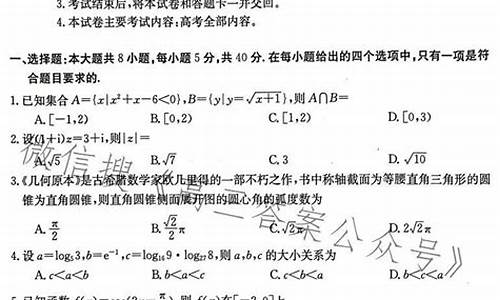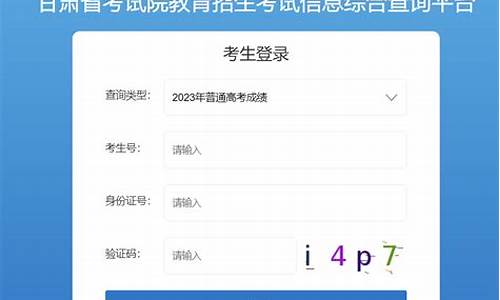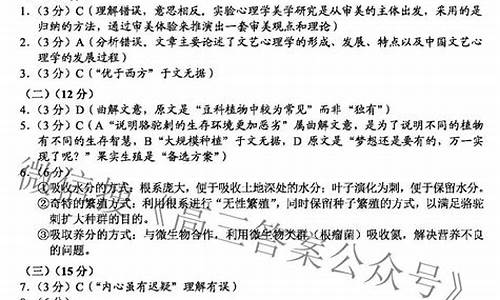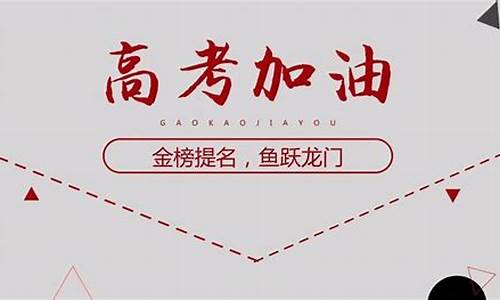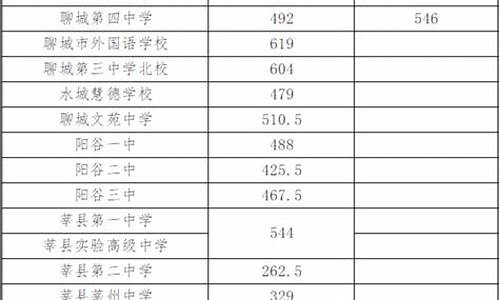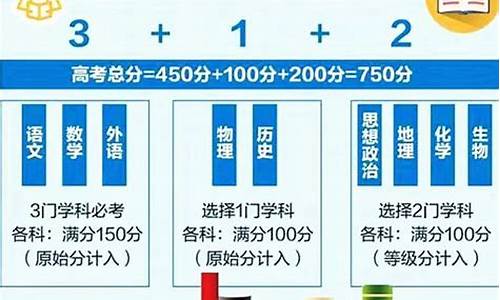您现在的位置是: 首页 > 专业报考 专业报考
高考从句解析_英语高考从句合集
tamoadmin 2024-06-26 人已围观
简介1.高考英语语法:高中英语语法-语法·表语从句用法小结2.高考题型中定语从句 名词性从句 如何区分3.定语从句高考句子名词性从句是由if, whether, that 和各种疑问词充当连接词所引导的从句,其功同名词一样。一.主语从句 主语从句是在复合句中充当主语的从句,通常放在主句谓语动词之前或由形式主语it代替,而本身放在句子末尾。 1. It 作形式主语和it引导强调句的比较 It 作形
1.高考英语语法:高中英语语法-语法·表语从句用法小结
2.高考题型中定语从句 名词性从句 如何区分
3.定语从句高考句子
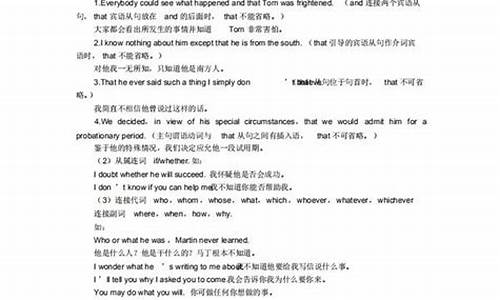
名词性从句是由if, whether, that 和各种疑问词充当连接词所引导的从句,其功同名词一样。
一.主语从句
主语从句是在复合句中充当主语的从句,通常放在主句谓语动词之前或由形式主语it代替,而本身放在句子末尾。
1. It 作形式主语和it引导强调句的比较
It 作形式主语代替主语从句,主要是为了平衡句子结构,主语从句的连接词没有变化。而it引导的强调句则是对句子某一部分进行强调,无论强调的是什么成分,都可用连词that。被强调部分指人是也可用who/whom。例如:
It is a pity that you didn’t go to see the film.
It doesn’t interest me whether you succeed or not.
It is in the morning that the murder took place.
It is John that broke the window.
2. 用it 作形式主语的结构
(1) It is +名词+从句
It is a fact that … 事实是…
It is an honor that …非常荣幸
It is common knowledge that …是常识
(2) it is +形容词+从句
It is natural that… 很自然…
It is strange that… 奇怪的是…
(3) it is +不及物动词+从句
It seems that… 似乎…
It happened that… 碰巧…
(4) it +过去分词+从句
It is reported that… 据报道…
It has been proved that… 已证实…
3. 主语从句不可位于句首的五种情况
(1) if 引导的主语从句不可居于复合句句首。
(2) It is said , (reported) …结构中的主语从句不可提前。例如:
It is said that President Jingo will visit our school next week. (right)
That President Jiang will visit our school next week is said. (wrong)
(3) It happens…, It occurs… 结构中的主语从句不可提前。例如:
It occurred to him that he failed in the examination. (right)
That he failed in the examination occurred to him. (wrong)
(4) It doesn’t matter how/whether …结构中的主语从句不可提前。例如:
It doesn’t matter whether he is wrong or not. (right)
Whether he is wrong or not doesn’t matter. (wrong)
(5) 含主语从句的复合句是疑问句时,主语从句不可提前。例如:
Is it likely that it will rain in the evening? (right)
Is that will rain in the evening likely? (wrong)
4. What 与that 在引导主语从句时的区别
What 引导主语从句时在句时在从句中充当句子成分,如主语.宾语.表语,而that 则不然。例如:
1) What you said yesterday is right.
2) That she is still alive is a consolation.
二.宾语从句
宾语从句就是在复合句中作宾语的名词性从句,通常放在主句谓语动词(及物动词)或介词之后。
1. 作动词的宾语
(1) 由that引导的宾语从句(that 通常可以省略),例如:
I heard that be joined the army.
(2) 由what, whether (if) 引导的宾语从句,例如:
1) She did not know what had happened.
2) I wonder whether you can change this note for me.
(3) 动词+间接宾语+宾语从句。例如:
She told me that she would accept my invitation.
2. 作介词的宾语
例如:Our success depends upon how well we can cooperate with one another.
3. 作形容词的宾语
例如:I am afraid (that) I’ve made a mistake.
That 引导的从句常跟在下列形容词后作宾语:
Anxious, aware, certain, confident, convinced, determined, glad, proud, surprised, worried, sorry, thankful, ashamed, disappointed, annoyed, pleased, hurt, satisfied, content 等。也可以将此类词后的that 从句的看作原因状语从句。
4. It 可以作为形式宾语
It 不仅可以作为形式主语,还可以作为形式宾语而真正的宾语that 从句则放在句尾,特别是在带复合宾语的句子中。 例如:
We heard it that she would get married next month..
5. 后边不能直接跟that 从句的动词
这类动词有Allow, refuse, let, like, cause, force, admire, condemn, celebrate, dislike, love, help, take, forgive等。这类词后可以用不定式或动名词作宾语,但不可以用that引导的宾语从句。例如:
I admire their winning the match. (right)
I admire that they won the match. (wrong)
6. 不可用that从句作直接宾语的动词
有些动词不可用于“动词+间接宾语+that从句“结构中,常见的有Envy, order, accuse, refuse, impress, forgive, blame, denounce, advise, congratulate等。例如:
He impressed the manager as an honest man. (right)
He impressed the manager that he was an honest man. (wrong)
7. 否定的转移
若主句谓语动词为Think, consider, wuppose, believe, expect, fancy, guess, imagine等,其后的宾语从句若含有否定意义,一般要把否定词转移到主句谓语上,从句谓语用肯定式。例如:
I don’t think this dress fits you well.(我认为这件衣服不适合你穿。)
三.表语从句
表语从句在复合句中作表语的名词性从句,放在系动词之后,一般结构是“主语+连系动词+表语从句”。可以接表语从句的连系动词有be, look, remain, seem等。引导表语从句的that常可省略。另外,常用的还有the reason is that… 和It is because 等结构。例如:
1) The question is whether we can make good preparation in such a short time.
2) This is why we can’t get the support of the people
3) But the fact remains that we are behind the other classes.
4) The reason he is late for school is that he missed the early bus.
四.同位语从句
同位语从句就是在复合句中作名词的同位语的名词性从句。
1. 同位语从句的功能
同位语从句对于名词进一步解释,说明名词的具体内容,一般由that引导,例如:
1) The king’s decision that the prisoner would be set free surprised all the people.
2) The order that all the soldiers should stay still is given by the general.
2. 同位语在句子中的位置
同位语从句有时可以不紧跟在它所说明的名词后面,而是被别的词隔开。例如:
He got the news from Mary that the sports meeting was put off.
3. 同位语从句与定语从句的区别
(1) 定语从句中的that既代替先行词,同时以在从句中作某个成分(主语或宾语),而同位语从句中的that是连词,只起连接主句与从句的作用,不充当句中任何成分。
(2) 定语从句是形容词性的,其功能是修饰先行词,对先行词加以限定,描述定的性质或特征;同位语从句是名词性的,其功能是对名词进行补充说明。例如:
1) The news that he told me is that Tom would go abroad next year.(他告诉我的消息是汤姆明年将出国。)(第一个that引导的从句是定语从句,that在从句中作宾语)
2)The news that Tom would go abroad is told by him.(汤姆将出国的消息是他讲的。)(同位语从句,that在句中不作任何成分)
这里也有
style="font-size: 18px;font-weight: bold;border-left: 4px solid #a10d00;margin: 10px 0px 15px 0px;padding: 10px 0 10px 20px;background: #f1dada;">高考英语语法:高中英语语法-语法·表语从句用法小结
在句子中起名词作用的句子叫名词从句 (Noun Clauses)。 名词从句的功能相当于名词词组, 它在复合句中能担任主语、宾语、表语、同位语、介词宾语等,因此根据它在句中不同的语法功能,名词从句又可分别称为主语从句、宾语从句、表语从句和同位语从句。
一、高考焦点指南在复合句中起名词作用的从句叫做名词性从句。它包括主语从句、宾语从句、表语从句和同位语从句。名词性从句是中学阶段的一个重要语法项目,在历年的高考中几乎都涉及到,并且每年的命题各有变化。分析历届高考试题名词性从句考查的焦点主要有以下六个方面
1. 考查名词性从句的语序问题
高考真题例示:
例1. The photographs will show you ____.(MET1989)
A. what does our village look like B. what our village looks like
C. how does our village look like D. how our village looks like
例2. Someone is ringing the doorbell. Go and see ___________. (NMET2000)
A. who is he B. who he is C. who is it D. who it is
例3. Can you make sure ______ the gold ring? (NMET1990)
A. where Alice had put B. where did Alice put
C. where Alice has put D. where has Alice put
例4. He asked ________ for the violin. (NMET1991)
A. did I pay how much B. I paid how much
C. how much did I pay D. how much I paid
2. 考查引导词that与what的区别
高考真题例示:
例1. ______we can’t get seems better than ______we have. (NMET1996)
A. What; what B. What; that C. That; that D. That; what
例2. No one can be sure _____ in a million years. (MET1991)
A. what man will look like B. what will man look like
C. man will look like what D. what look will man like
例3. _______ you have done might do harm to other people. (MET 1987)
A. That B. What C. Whether D. How
例4. _______ you don't like him is none of my business. (上海1992)
A. What B. Who C. That D. Whether
3. 考查it在名词性从句中作形式主语或形式宾语的用法
高考真题例示:
例1. _____ is a fact that English is being accepted as an international language. (NMET1995)
A. There B. This C. That D. It
例2. It worried her a bit ______her hair was turning grey.
A. while B. if C. that D. for
例3. I hate _____when people talk with their mouths full. (NMET1998)
A. it B. that C. this D. them
例4. Does _______ matter if he can't finish the job on time? (MET 1991)
A. this B. that C. he D. it
4. 考查whether与if的区别
高考真题例示:
例1. _____we’ll go camping tomorrow depends on the weather. (NMET1996)
A. If B. Whether C. That D. Where
例2. What the doctors really doubt is _____my mother will recover from the serious disease soon. (上海2001)
A. when B. how C. whether D. why
例3. _____ the 2000 Olympic Games will be held in Beijing is not known yet. (MET1992)
A. Whenever B. If C. Whether D. That
5. 考查名词性从句中的疑问词+ever引导的名词性从句与no matter+疑问词引导的状语从句的区别
高考真题例示:
例1. It is generally considered unwise to give a child _____he or she wants. (NMET1997)
A. however B. whatever C. whichever D. whenever
例2. ______leaves the room last ought to turn off the lights. (MET1988)
A. Anyone B. The person C. Whoever D. Who
例3. Sarah hopes to become a friend of ______shares her interests. (上海1995)
A. anyone B. whomever C. whoever D. no matter who
6. 考查名词性从句的虚拟语气问题
高考真题例示:
例1:It is necessary that a college student ______at least a foreign language. (上海1993)
A. masters B. should master C. mastered D. will master
二、语法要点剖析
一、名词性从句
主语从句、表语从句、宾语从句、同位语从句,在整个句子中所起的作用,相当于一个名词。因此,这四种从句通称为名词性从句。
引导名词性从句的连接词可分为三类:
连接词:that, whether, if (不充当从句的任何成分)
连接代词:what, whatever, who, whoever, whom, whose, which.
连接副词:when, where, how, why
1. 主语从句
作句子主语的从句叫主语从句。主语从句通常由从属连词that,whether,if和连接代词what,who,which,whatever, whoever以及连接副词how,when,where,why等词引导。that在句中无词义,只起连接作用;连接代词和连接副词在句中既保留自己的疑问含义、又起连接作用,在从句中充当从句的成分。例如:
What he wants to tell us is not clear. 他要跟我们说什么,还不清楚。
Who will win the match is still unknown. 谁能赢得这场比赛还不得而知。
It is known to us how he became a writer. 我们都知道他是如何成为一名作家的。
Where the English evening will be held has not yet been announced. 英语晚会将在哪里举行,还没有宣布。
有时为避免句子头重脚轻,常用形式主语it代替主语从句作形式主语放于句首,而把主语从句置于句末。主语从句后的谓语动词一般用单数形式。常用句型如下:
(1)?It + be + 名词 + that从句
(2)It + be + 形容词 + that从句
(3)It + be + 动词的过去分词 + that从句
(4)It + 不及物动词 + that 从句
另注意在主语从句中用来表示惊奇、不相信、惋惜、理应如此等语气时,谓语动词要用虚拟语气“(should) +do”,常用的句型有:
It is necessary (important, natural, strange, etc.) that …
It is a pity (a shame, no wonder, etc.) that…
It is suggested (requested, proposed, desired, etc.) that…
2. 宾语从句
名词句用作宾语的从句叫宾语从句。引导宾语从句的关联词与引导主语从句表语从句的关联词大致一样,在句中可以作谓语动词或介词及非谓语动词的宾语。
1. 由连接词that引导的宾语从句
由连接词that引导宾语从句时,that在句中不担任任何成分,在口语或非正式的文体中常被省去,但如从句是并列句时,第二个分句前的that不可省。例如:
He has told me that he will go to Shanghai tomorrow. 他已经告诉我他明天要去上海。
We must never think (that) we are good in everything while others are good in nothing. 我们决不能认为自己什么都好,别人什么都不好。
注意:在demand、order、suggest、decide、insist, desire, demand, request, command等表示要求、命令、建议、决定等意义的动词后,宾语从句常用“(should)+ 动词原形”。例如:
I insist that she (should) do her work alone. 我坚持要她自己工作。
The commander ordered that troops (should) set off at once. 司令员命令部队马上出发。
2. 用who,whom, which, whose, what, when, where, why, how, whoever, whatever, whichever等关联词引导的宾语从句相当于特殊疑问句,应注意句子语序要用陈述语序。例如:
I want to know what he has told you. 我想知道他告诉了你什么。
She always thinks of how she can work well. 她总是在想怎样能把工作做好。
She will give whoever needs help a warm support. 凡需要帮助的人,她都会给予热情的支持。
3. 用whether或if引导的宾语从句,其主语和谓语的顺序也不能颠倒,仍保持陈述句语序。此外,whether与if 在作“是否”的意思讲时在下列情况下一般只能用whether,不用if:
a. 引导主语从句并在句首时;b. 引导表语从句时;c . 引导从句作介词宾语时;d. 从句后有“or not”时;e. 后接动词不定式时。例如:
Whether there is life on the moon is an interesting question. 月球上有没有生命是个有趣的问题。
The question is whether she should have a low opinion of the test?
Everything depends on whether we have enough money. 一切要看我们是否有足够的钱。
I wonder whether he will come or not. 我想知道他来还是不来。
Can you tell me whether to go or to stay? 你能否告诉我是去还是留?
4. 注意宾语从句中的时态呼应,当主句动词是现在时,从句根据自身的句子情况,而使用
不同时态。例如:
he studies English every day. (从句用一般现在时)
he studied English last term. (从句用一般过去时)
I know (that) he will study English next year. (从句用一般将来时)
he has studied English since 1998. (从句用现在完成时)
当主句动词是过去时态(could, would除外),从句则要用相应的过去时态,如一般过去时,过去进行时,过去将来时等;当从句表示的是客观真理,科学原理,自然现象,则从句仍用现在时态。例如:
The teacher told us that Tom had left us for America.
5. think, believe, imagine, suppose等等动词引起的否定性宾语从句中,要把上述主句中的动词变为否定式。即将从句中的否定形式移到主句中。例如:
We don’t think you are here. 我们认为你不在这。
I don’t believe he will do so. 我相信他不会这样做。
3. 表语从句
在句中作表语的从句叫表语从句。引导表语从句的关联词与引导主语从句的关联词大致一样,表语从句位于连系动词后,有时用as if引导。其基本结构为:主语 + 系动词 + that从句。例如:
The fact is that we have lost the game. 事实是我们已经输了这场比赛。
That’s just what I want. 这正是我想要的。
This is where our problem lies. 这就是我们的问题所在。
That is why he didn’t come to the meeting. 那就是他为什么不到会的原因。
It looks as if it is going to rain. 看上去天要下雨了。
需要注意的,当主语是reason时,表语从句要用that引导而不是because。例如:
The reason why he was late was that he missed the train by one minute this morning
4. 同位语从句
同位语从句说明其前面的名词的具体内容。同位语从句通常由that引导,可用于同位语从句的名词有advice、demand、doubt、fact、 hope、idea、information、message、news、order、problem、promise、question、 request、suggestion、truth、wish、word等。例如:
The news that we won the game is exciting. 我们赢得这场比赛的消息令人激动。
I have no idea when he will come back home. 我不知道他什么时候回来。
The thought came to him that Mary had probably fallen ill. 他想到可能玛丽生病了。
同位语从句和定语从句的区别:
that作为关系代词,可以引导定语从句,充当句子成分,在从句中作宾语时可以省略; that引导同位语从句时,起连词的作用,没有实际意义,不充当句子成分,一般不能省略。
试比较下面两个例句:
I had no idea that you were here.(that引导同位语从句,不能省略)
Have you got the idea(that)this book gives you of life in ancient Greece?(that引导定语从句,作宾语,可以省略)
三、高考热点透视
1. ___ is a fact that English is being accepted as an international language. (NMET 1995)
A. There B. This C. That D. It
答案D。当名词从句在句中作主语时,为避免句子头重脚轻,常用it作形式主语置于句首,而将真正的主语从句放在句尾。此时it只起先行引导作用,本身无实义。此句也可以改写为:That English is being accepted as an international language is a fact.
2.A computer can only do ____ you have instructed it to do.(NMET2001)
A.how B.after C.what D.when
答案C。从句子结构可知,句子的空白处应该填引导宾语从句的连词,做主句谓语动词do的宾语,同时该连接词还是从句中的do的宾语,因此,此处的连接词应该用what。
3. He asked ____ for a violin.(MET1992)
A. did I pay how much B. I paid how much
C. how much did I pay D. how much I paid
答案:D。宾语从句相当于特殊疑问句,句子语序要用陈述语序。
4. What the doctors really doubt is my mother will recover from the serious disease soon.(上海2001年春季招生)
A. when B. how C. whether D. why
答案C。这是一个表语从句。根据 doubt一词可知,所怀疑的应是是否能治好病,所以要填whether。这句话的意思是“医生真的怀疑我妈妈是否能很快从重病中恢复过来。”
5.It is generally considered unwise to give a child _____he or she wants. (NMET1997)
A. however B. whatever C. whichever D. whenever
答案B。根据句意“一般认为孩子要什么就给什么是不好的。”可以看出后面的从句应是一个宾语从句,而从句中wants缺少宾语,A. however 和D. whenever是不能作宾语的;排除A和D,whichever表示“无论哪一个,无论哪些”,应表示一定范围内的人或物,此处没有涉及事物的范围,所以应选 B.whatever,表示“无论什么”。
6. ______leaves the room last ought to turn off the lights. (MET1988)
A. Anyone B. The person C. Whoever D. Who
答案C。本题句子的意思是:无论谁最后离开房间一定要把灯关掉。本题考查连接代词whoever引导的名词性从句,连接代词whoever可以引导名词性从句,并在从句中作主语,相当于any person who或The person who, 意为“一切……的人”。而anyone和the person均非连词,不能引导从句,况who leaves the room last意为“某个最后离开房间的人”,与题意不符,如果要选A. Anyone或B. The person,都必须在它们后面再加上引导定语从句的关系代词who。如果要选D. Who就体现不出“无论谁”的含义了。
7. Sarah hopes to become a friend of ______shares her interests. (Shanghai1995)
A. anyone B. whomever C. whoever D. no matter who
答案为C。本题句子的意思是:Sarah希望跟自己有共同爱好的人交朋友。疑问词+ever引导的名词性从句与no matter+疑问词引导的从句的区别是:前者既可以引导名词性从句也可以引导让步状语从句;后者只能引导让步状语从句。首先排除A和D,从句中需要的是主语,所以whomever也不行。
8. ---- I drove to Zhuhai for the air show last week.
---- Is that ______ you had a few days off ? ( NMET1999)
A. why B. what C. when D. where
答案A。根据语境,甲说上周驱车去珠海观看航模展览。乙据此来询问甲这是否是请几天假的原因,故答案是A。答案B,C, D均与该题语境不符。根据上句提供的语境,下句应该问“那就是你为什么离开几天的原因吗?”
9. I still remember ______ this used to be a quiet village. ( NMET1993)
A. when B. how C. where D. what
答案A。根据从句中缺少的句子成分是状语,排除D.what,而答案C, D均与题意不符,所以应选A.when。used to be表示一种过去存在的状态,本句的意思是“我仍然记得这里在什么时候是个宁静的地方。”
10.I read about it in some book or other,does it matter ____ it was?(2001春季招生)
A.where B.what C.how D.which
答案D。这是一个主语从句。主语从句中缺少表语。从上句的意思分析,应是哪本书,所以要填which,这句话的意思是“我在某本书中读到过有关这方面的内容,是哪一本书重要吗?”。
11. Information has been put forward ____ more middle school graduates will be admitted into universities.
A. while B. that C when D. as (2001年上海)
答案B。该题考查that引导的同位语从句。同位语从句通常由that引导,接在fact, news, promise, possibility, information, doubt, message名词后,用来解释或说明名词的内容。
12. —I think it is going to be a big problem.
—Yes, it could be.
—I wonder ______ we can do about it. (北京 2002春季)
A、if B、how C、what D、that
答案C。本题考察名词性从句的连接词的用法。wonder后面应跟宾语从句,而从句中的谓语动词do是及物动词,可见从句缺少一个代替宾语的成分,我们可以用排除法排除不作成分的if和that,再排除引导方式状语的how,答案是C,句子的意思是“我们能就此做些什么”。
四、专项考点练习
1. ________that they found an unusual plant in the forest.
A. It is said B. They are said C. It said D. It says
2. _____ caused the accident is still a complete mystery.
A. What B. That C. How D. Where
3. It worried Mary a lot _____ she would pass the college entrance examination.
A. whether B. if C. that D. how
4. Shanghai has taken on a new look. It isn’t like _____ it used to be .
A .what B. how C. that D. which
5. ____ is no possibility ______ Bob will win the first prize in the match.
A. There, that B. It, that C. There, whether D. It, whether
6. Little Tommy was reluctant to tell the schoolmaster ____ he had done the day before.
A .that B. how C .what D. where
7. The old man smiled when he saw how pretty _____ up to be during the past few years.
A. had his daughter grown B. would his daughter grow
C. his daughter would grow D. his daughter had grown
8. Have you seen Mary lately? My boss wants to know _______.
A.?how she is getting along B. how is she getting along
C. what she is getting along D. what is she getting along
9. ____surprised me most was _____such a little girl of seven could play the violin so well.
A.?That; what B. What; that C. That; that D. What; what
10. These wild flowers are so special I would do ______ I can to save them.
A. whatever B. which C. that D. whichever
11. _____ helped to save the drowning girl is worth praising.
A. Who B. Anyone C. Whoever D. The person
12. Eat _____ you like and leave the others for _____ comes in late.
A. any; who B. every; whoever C. whichever; whoever D. either; whoever
13. ____ she couldn’t understand was _____ fewer and fewer students showed interest in her lessons.
A. What; why B. That; why C. What; because D. Why; that
14. It was ____ he said ___ disappointed me.
A. What; that B. That; that C. What; what D. That;what
15. It was ordered that all the soldiers _______to the front.
A. should send B. must be sent C. should be sent D. must go
16. The true value of life is not in ______, but _______.
A. which we get; what give we B. what we get; what we give
C. which do we get; what do we give D. how we get; that we give
17. We are all for your proposal that the discussion _______.
A. be put off B. was put off C. should put off D. is to be put off
18. Go and get your coat.It's ____ you left it.
A. where B. there C. here where D. where there
19. Sarah hopes to become a friend of ______ shares her interests.
A. anyone B. whomever C. whoever D. no matter who
20. You can’t imagine ______ when they received these nice Christmas presents.
A. how they were excited B. how excited they were
C. how excited were they D. they were how excited
Keys: 1---5 A A ABA 6---10 CDABA 11----15 CCAA C 16---20 BAACB
高考题型中定语从句 名词性从句 如何区分
《高中英语语法-语法·表语从句用法小结》由出国留学我精心为您学习英语准备.liuxue86.com。本内容整理时间为05月12日,如有任何问题请联系我们。
语法?表语从句用法小结
一、表语从句的定义:
表语从句放在连系动词之后,充当复合句中的表语。
二、表语从句的构成:
关联词+简单句
三、引导表语从句的关联词的种类:
1. 可接表语从句的连系动词有be,look,seem,sound,appear等。
China is no longer what she used to be.
今日的中国不再是过去的中国了。
The question remains whether they will be able to help us.
问题还是他们能否帮我们。
At that time,it seemed as if I couldn't think of the right word.
当时,我似乎怎么也想不出一个恰当的字眼来。
2. 从属连词whether,as,as if / though引导的表语从句。
He looked just as he had looked ten years before.
他看起来还与十年前一样。
It sounds as if someone is knocking at the door.
听起来好像有人在敲门。
3. because,why引导的表语从句。
That's because he didn't understand me.
那是因为他没有理解我。(That's because?强调原因)
That's why he got angry with me.
那正是他对我生气的原因。(That's why?强调结果)
what引导的主语从句表示结果或名词reason作主语时,后面的表语从句表示原因时要用that引导,不宜用because.
The reason why I was sad was that he didn't understand me.
我难过的原因是他没有理解我。
4. 连接代词who,whom,whose,what,which,whoever,whatever,whichever
连接副词 where,when,how,why
The problem is who we can get to replace her.
问题是我们能找到谁去替换她呢。
The question is how he did it.
问题是他是如何做此事的。
That was what she did this morning on reaching the attic.
那就是她今晨上了阁楼干的。
5. 从属连词that
The trouble is that I have lost his address.
麻烦是我把他的地址丢了。
6. 使用虚拟语气的表语从句
在表示建议、劝告、命令含义的名词后的表语从句,谓语动词需用?should+动词原形? 表示,should可省略。常见的词有:advice,suggestion,order,proposal,plan,idea等。
My suggestion is that we (should) start early tomorrow.
我的建议是我们明天一早就出发。
四、应注意的问题:
1. 连系动词be,appear,seem,look等之后可以跟表语从句。
It was because he didn't pass the exam.
那是因为他没有通过考试。
It seems(that)he was late for the train.
看来他没搭上火车。
It appears that she was wrong.
看来她错了。
It seems to me that we should answer for this.
在我看来,我们似乎应该对此事负责。
It appears to her that he wants to teach us all he has.
在她看来,他似乎要把他所会的都教给我们。
2. 引导表语从句的引导词有以下几类。
1)wh-疑问词
My question is who left.
我想问的是谁离开了。
What I wonder is when he left.
我想知道他是何时离开的。
That's what he wants.
那是他想要的。
This is where they once lived.
这就是他们曾经住过的地方。
That is why he didn't come here. 这就是他为何没到这儿来的原因。
2)whether
My question is whether he left(or not)。 我的问题是他是否离开了。
注:if不能引导表语从句。
3)that
The fact is that he left. 事实是他离开了。
注:引导表语从句的连词that间或可以省略。
The truth is(that)I didn't go there. 事实是我没去那儿。
4)because,as,as if,as though
It's just because he doesn't know her. 这是仅仅因为他不认识她。
Things are not always as they seem to be. 事物并不总是如其表象。
He looks as if he's tired. 他好像累了。 《高中英语语法-语法·表语从句用法小结》由出国留学我精心为您学习英语准备.liuxue86.com
定语从句高考句子
18.1 关系代词引导的定语从句
关系代词所代替的先行词是人或物的名词或代词,并在句中充当主语、宾语、定语等成分。关系代词在定语从句中作主语时,从句谓语动词的人称和数要和先行词保持一致。
1)who, whom, that
这些词代替的先行词是人的名词或代词,在从句中所起作用如下:
Is he the man who/that wants to see you?
他就是你想见的人吗?(who/that在从句中作主语)
He is the man whom/ that I saw yesterday.
他就是我昨天见的那个人。(whom/that在从句中作宾语)
2) Whose 用来指人或物,(只用作定语, 若指物,它还可以同of which互换), 例如:
They rushed over to help the man whose car had broken down. 那人车坏了,大家都跑过去帮忙。
Please pass me the book whose (of which) cover is green. 请递给我那本绿皮的书。
3)which, that
它们所代替的先行词是事物的名词或代词,在从句中可作主语、宾语等,例如:
A prosperity which / that had never been seen before appears in the countryside. 农村出现了前所未有的繁荣。(which / that在句中作宾语)
The package (which / that) you are carrying is about to come unwrapped. 你拿的包快散了。(which / that在句中作宾语)
18.2 关系副词引导的定语从句
关系副词可代替的先行词是时间、地点或理由的名词,在从句中作状语。
1)when, where, why
关系副词when, where, why的含义相当于"介词+ which"结构,因此常常和"介词+ which"结构交替使用,例如:
There are occasions when (on which) one must yield. 任何人都有不得不屈服的时候。
Beijing is the place where (in which) I was born. 北京是我的出生地。
Is this the reason why (for which) he refused our offer? 这就是他拒绝我们帮助他的理由吗?
2)that代替关系副词
that可以用于表示时间、地点、方式、理由的名词后取代when, where, why和"介词+ which"引导的定语从句,在口语中that常被省略,例如:
His father died the year (that / when / in which) he was born. 他父亲在他出生那年逝世了。
He is unlikely to find the place (that / where / in which) he lived forty years ago. 他不大可能找到他四十年前居住过的地方。
18.3 判断关系代词与关系副词
方法一: 用关系代词,还是关系副词完全取决于从句中的谓语动词。及物动词后面无宾语,就必须要求用关系代词;而不及物动词则要求用关系副词。例如:
This is the mountain village where I stayed last year.
I'll never forget the days when I worked together with you.
判断改错(注:先显示题,再显示答案,横线;用不同的颜色表示出。)
(错) This is the mountain village where I visited last year.
(错) I will never forget the days when I spent in the countryside.
(对) This is the mountain village (which) I visited last year.
(对) I'll never forget the days (which) I spent in the countryside.
习惯上总把表地点或时间的名词与关系副词 where, when联系在一起。此两题错在关系词的误用上。
方法二: 准确判断先行词在定语从句中的成分(主、谓、宾、定、状),也能正确选择出关系代词/关系副词。
例1. Is this museum ___ you visited a few days age?
A. where B. that C. on which D. the one
例2. Is this the museum ____ the exhibition was held.
A. where B. that C. on which D. the one
答案:例1 D,例2 A
例1变为肯定句: This museum is ___ you visited a few days ago.
例2变为肯定句: This is the museum ___ the exhibition was held.
在句1中,所缺部分为宾语,而where, that, on which都不能起到宾语的作用,只有the one既做了主句的表语,又可做从句的宾语,可以省略关系代词,所以应选D。
而句2中, 主、谓、宾俱全,从句部分为句子的状语表地点,既可用副词where,又因 in the museum词组,可用介词in + which 引导地点状语。而此题中,介词on 用的不对,所以选A。
关系词的选择依据在从句中所做的成分,先行词在从句中做主、定、宾语时,选择关系代词 (who, whom, that, which, whose); 先行词在从句中做状语时,应选择关系副词 ( where 地点状语,when 时间状语,why 原因状语) 。
18.4 限制性和非限制性定语从句
1) 定语从句有限制性和非限制性两种。限制性定语从句是先行词不可缺少的部分,去掉它主句意思往往不明确;非限制性定语从句是先行词的附加说明,去掉了也不会影响主句的意思,它与主句之间通常用逗号分开,例如:
This is the house which we bought last month. 这是我们上个月买的那幢房子。(限制性)
The house, which we bought last month, is very nice.这幢房子很漂亮,是我们上个月买的。(非限制性)
2) 当先行词是专有名词或物主代词和指示代词所修饰时,其后的定语从句通常是非限制性的,例如:
Charles Smith, who was my former teacher, retired last year. 查理·史密斯去年退休了,他曾经是我的老师。
My house, which I bought last year, has got a lovely garden. 我去年买的的那幢房子带着个漂亮的花园。
This novel, which I have read three times, is very touching. 这本小说很动人,我已经读了三遍。
3) 非限制性定语从句还能将整个主句作为先行词, 对其进行修饰, 这时从句谓语动词要用第三人称单数,例如:
He seems not to have grasped what I meant, which greatly upsets me. 他似乎没抓住我的意思,这使我心烦。
Liquid water changes to vapor, which is called evaporation. 液态水变为蒸汽,这就叫做蒸发。
说明:关系代词that和关系副词why不能引导非限制性定语从句。
介词+关系词
1)介词后面的关系词不能省略。
2)that前不能有介词。
3) 某些在从句中充当时间,地点或原因状语的“介词+关系词”结构可以同关系副词when 和where 互换。
This is the house in which I lived two years ago.
This is the house where I lived two years ago.
Do you remember the day on which you joined our club?
Do you remember the day when you joined our club?
先行词和关系词二合一
1)Whoever spits in public will be punished here.
(Whoever 可以用 anyone who 代替)
2)The parents will use what they have to send their son to technical school.
(what 可以用all that代替)
as, which 非限定性定语从句
由as, which 引导的非限定性定语从句,as和which可代整个主句,相当于and this或and that。As一般放在句首,which在句中。
As we know, smoking is harmful to one's health.
The sun heats the earth, which is very important to us.
典型例题
1)Alice received an invitation from her boss, ___came as a surprise.
A. it B. that C. whichD. he
答案C. 此为非限定性从句,不能用 that修饰,而用which.,it 和he 都使后句成为句子,两个独立的句子不能单以逗号连接。况且选he句意不通。
2)The weather turned out to be very good, ___ was more than we could expect.
A. what B. which C. that D. it
答案B。which可代替句子,用于非限定性定语从句,而what不可。That 不能用于非限定性定语从句,it不为连词,使由逗号连接的两个句子并在一起在英语语法上行不通。
3)It rained hard yesterday, ____ prevented me from going to the park..
A. that B. whichC. as D. it
答案B.
as 和which在引导非限制性定语从句时,这两个关系代词都指主句所表达的整个意思,且在定语从句中都可以作主语和宾语。但不同之处主要有两点:
(1) as 引导的定语从句可置于句首,而which不可。
(2) as 代表前面的整个主句并在从句中作主语时,从句中的谓语必须是系动词;若为行为动词,则从句中的关系代词只能用which.。
在本题中,prevent由于是行为动词,所以正确选项应为B。
As 的用法
例1. the same… as;such…as 中的as 是一种固定结构, 和……一样……。
I have got into the same trouble as he (has).
例2. as可引导非限制性从句,常带有'正如'。
As we know, smoking is harmful to one's health.
As is know, smoking is harmful to one's health.
As是关系代词。例1中的as作know的宾语;例2中,它充当从句的主语,谓语动词know要用被动式。
关系代词that 的用法
1)不用that的情况
a) 在引导非限定性定语从句时。
(错) The tree, that is four hundred years old, is very famous here.
b) 介词后不能用。
We depend on the land from which we get our food.
We depend on the land that/which we get our food from.
2) 只能用that作为定语从句的关系代词的情况
a) 在there be 句型中,只用that,不用which。
b) 在不定代词,如:anything, nothing, the one, all, much, few, any, little等作先行词时,只用that,不用which。
c) 先行词有the only, the very修饰时,只用that。
d) 先行词为序数词、数词、形容词最高级时,只用that。.
e) 先行词既有人,又有物时。
举例:
All that is needed is a supply of oil.
所需的只是供油问题。
Finally, the thief handed everything that he had stolen to the police.
那贼最终把偷的全部东西交给了警察。
难点分析
(一)限制性定语从句只能用that的几种情况
1.当先行词是anything, everything, nothing (something 除外), few, all, none, little, some等代词时,或者是由every, any, all, some, no, little, few, much等修饰时
(1) Have you taken down everything that Mr. Li has said?
(2) There seems to be nothing that seems impossible for him in the world.
(3) All that can be done has been done.
(4) There is little that I can do for you.
注意:当先行词指人时,偶尔也可以用who
(4) Any man that/.who has a sense of duty won’t do such a thing.
2. 当先行词被序数词修饰
(1) The first place that they visited in London was the Big Ben.
3. 当先行词被形容词最高级修饰时
(1) This is the best film that I have seen.
4. 当形容词被the very, the only 修饰时
(1) This is the very good dictionary that I want to buy,
(2) After the fire in his house, the old car is the only thing that he owned.
当先行词指人时,偶尔也可以用who
(3) Wang Hua is the only person in our school who will attend the meeting/
5. 当先行词前面有who, which等疑问代词时
(1) Who is the man that is standing there?
(2) Which is the T-shirt that fits me most?
6. 当先行词既有人,也有动物或者物体时
(1) Can you remember the scientist and his theory that we have learned?
(二)关系代词as和which引导的定语从句
as和which引导非限制性定语从句,有相同之处也有不同之处。具体情况是:
1.As和which都可以在定语从句中做主语或者宾语,代表前面整个句子。
(1) He married her, as/which was natural.
(2) He was honest, as/which we can see.
2. as 引导非限制性定语从句,可放在主句之前,或者主句之后,甚至可以切割一个主句;which引导的非限制性定语从句只能放在主句之后。另外,as有“正如……,正像……”的意思
(1) As is known to all, China is a developing country.
(2) He is from the south, as we can see from his accent.
(3) John, as you know, is a famous writer.
(4) He has been to Paris more than several times, which I don’t believe.
注意:当主句和从句存在逻辑上的因果关系时,常用which
(5) Tom was always late for school, which made his teacher angry.
3. 当先行次受such, the same修饰时,常用as
(1) I have never heard such a story as he tells.
(2) He is not such a fool as he looks.
(3) This is the same book as I lost last week.
注意:当先行次由the same修饰时,偶尔也用that引导定语从句,但是和由as所引导的定语从句意思不同
(4) She wore the same dress that she wore at Mary’s wedding. 她穿着她在MARY婚礼上穿过的一条裙子。
(5) She wore the same dress as her young sister wore. 她穿着和她妹妹所穿的一样的裙子。
(三)以the way为先行词的定语从句通常由in which, that引导,而且通常可以省略。
(1) The way in which/ that/./ he answered the question was surprising.
(四) but有时也可以做关系词引导定语从句
(1) There are very few but understand his idea. ( but= who don’t )
(五) 区分定语从句和同位语从句
1.定语从句修饰先行词,它和先行词是修饰关系;同位语从句说明先行词的具体内容,是补充说明的关系
(1) The plane that has just taken off is for London. 定语从句
(2) The fact that he has been dead is clear. 同位语从句
2.定语从句由关系代词或者关系副词引导,关系词在句中充当成分,有时可以省略;同位语从句主要由that引导,在句中一般不做成分;句子也可以由when, where, how, why, whether, what等词引导,充当成分
(1) The news he told me is true.
(2) The news that he has just died is true.
(3) The problem that we are facing now is how we can collect so much money. 定语
(4) The problem how we can collect so much money is difficult to solve.
3. 同位语从句和先行词一般可以用be动词发展成一个完整的句子,而定语从句不可以
(1) The idea that we could ask the teacher for advice is wonderful. 同位语
(2) The idea was that we could ask the teacher for advice.
(3) The fact that the earth moves around the earth is known to all.
(4) The fact is that the earth moves around the earth.
